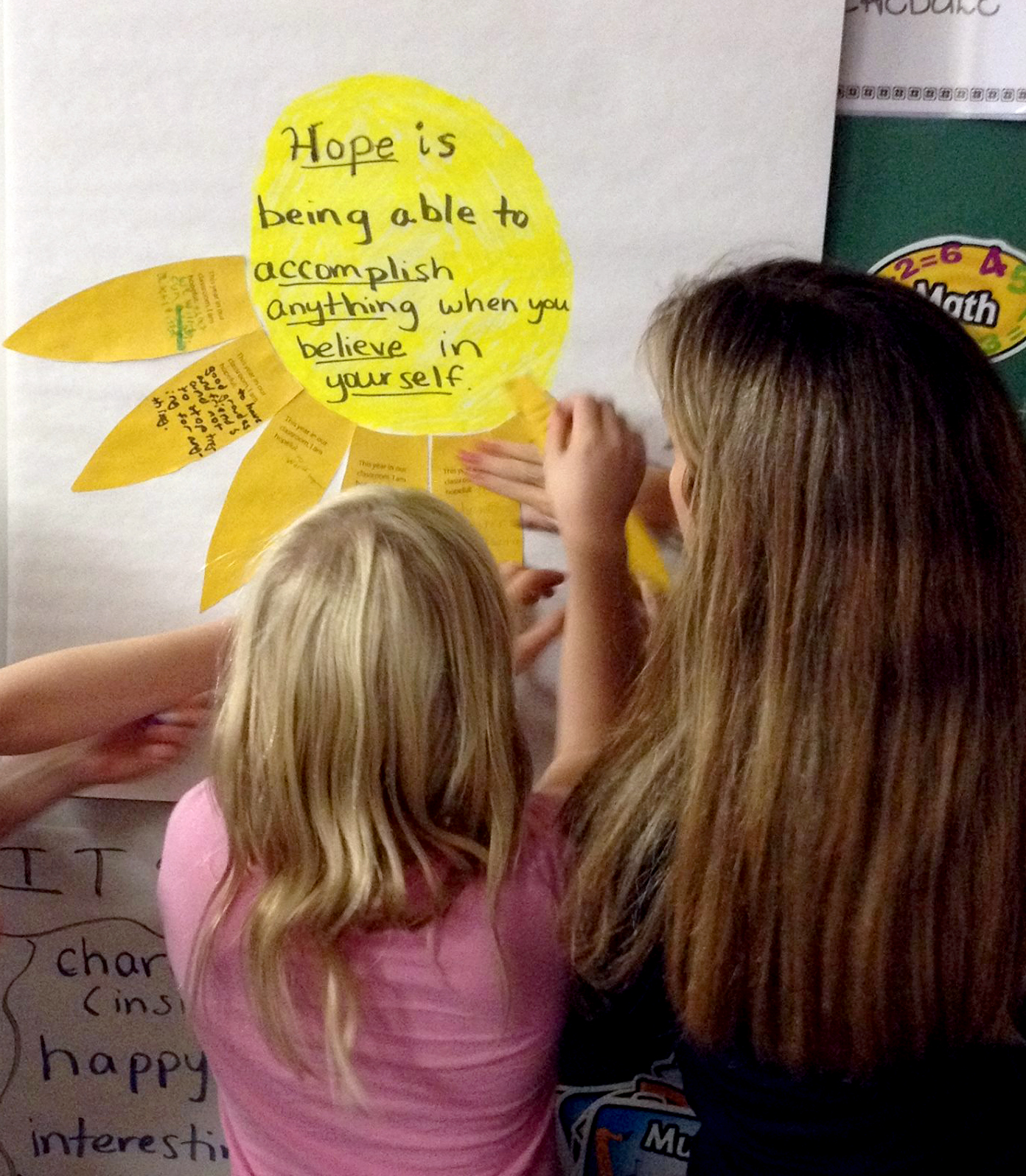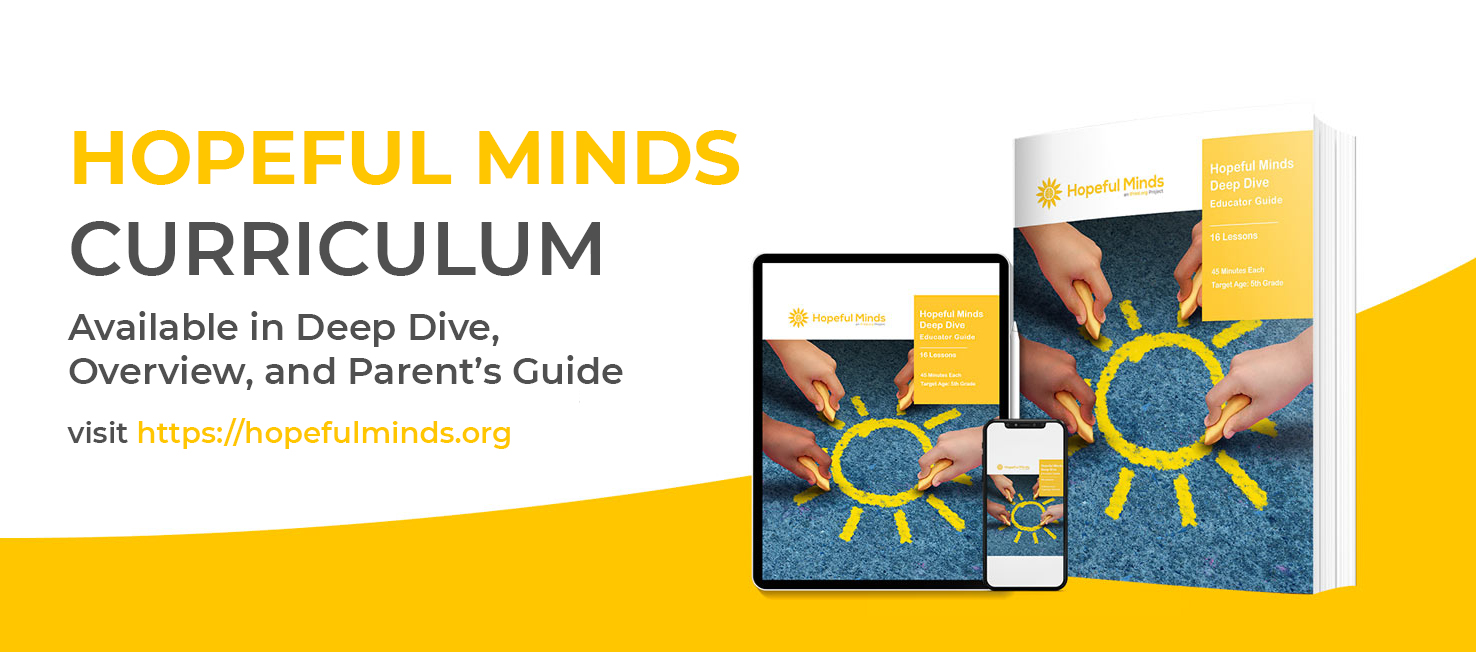
The consequences of the COVID-19 pandemic, as well as the stark reminders of race-related discrimination that took center stage in 2020, have created a surge of hopelessness around the world. The isolation of social distancing and quarantine, along with the uncertainty of when “normal life” will resume, has only exacerbated the issue. In the face of the rise of hopelessness, there has never been a more crucial time to focus on the skills that help us to find hope.

While it can be hard to reach a hopeful mindset yourself, it can be even harder to help your child create, maintain, and grow hope in today’s world. It is for this very purpose that Hopeful Minds was created. Hopeful Minds is a program dedicated to helping educators, parents, and leaders teach their children critical hope skills.
Hope, a vision fueled by positive feelings and inspired actions, can have lasting, positive impacts on your life. Studies show that higher hope is associated with improved attention in class, better sports performance, better quality relationships, reduced likelihood of anxiety and depression, less violence, less likelihood of addiction and risky behaviors, and less loneliness. Anxiety and depression can begin to appear by age seven, and will continue to develop through middle school and high school. And, most researchers agree that the number of children with anxiety and depression will likely increase due to current events. Therefore, the more we can encourage children to aspire to increase their hope, the more we can help them to nurture the skills they need to succeed.
The Hopeful Minds curriculums were published in 2014 and re-released in 2020 with new lessons, worksheets, and activities that address current events and built on the last six years of extensive hope research conducted in Suriname, Northern Ireland, Malaysia, Chicago, and more. The curriculums acknowledge the current climate through remote-learning capability while teaching the skills needed to find hope in adversity.

Hopeful Minds also released a Hopeful Minds Parent Guide that introduces parents to the hope language, activities, and skills that they can easily implement in their home, as well as resources for where to find support, and how to help children experiencing stress, anxiety, and depression.
Now, more than ever, we need to make hope a priority for our children. As Dr. Myron Belfer, Professor of Psychiatry at Children’s Hospital Boston, Harvard Medical states, “Hope is tangible and teachable, and it is an essential ingredient for a successful life trajectory.”
You can find out more about hope and the Hopeful Minds curriculums at www.hopefulminds.org.

